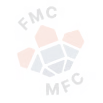Indigenous communities may use mediation for a variety of community issues, including land use planning and project development. Mediators with specialized training in Indigenous Community Mediation have the knowledge and experience to mediate with cultural sensitivity and respect in assisting community members with productive discussion.
Indigenous Community

Summary
When this is used.
Indigenous communities for centuries have had, and to varying degrees in different Territories still preserve and apply, their own ancient and traditional methods of problem-solving. Indigenous communities can inform others, but they, in turn, are informed by mediation developments elsewhere: we need to learn from each other as is so often the case in this field, which is always open to being shaped by cross-cultural influences. This awareness has inspired the formation of the FMC Indigenous Community Mediation specialty.
Mediation is, we believe, well-suited to addressing issues that can arise in First Nations family, social, cultural, and, more recently, human rights, contexts. In particular, the mediation process is highly adaptable to traditional customs. The process typically provides opportunities for building respect and enhancing relationships.
Over the past few years, there has been an increase in the need for First Nations communities to engage in comprehensive community planning as well as land use planning. These types of projects rely on collaborative approaches that bring community members together in positive and productive environments. Mediation can help participants focus on common community goals and implement workable solutions.
There has also been an increase in the need to contact and communicate with members who may not necessarily be living at home or even within the territory.
The challenge is to get information out and to receive community input in a way that is both meaningful and useful. Mediation responds to this challenge by providing a variety of ways in which to connect and work with participants.
A number of professional mediators across Canada are experienced in providing conflict resolution services in the Indigenous context.
The FMC Indigenous Community Mediation Committee is working to bring professional mediators together in a forum where knowledge, skill and experience can be shared, with a view to honing the skills of mediators practising in this area and generating awareness of and use of culturally-relevant conflict resolution techniques.
The Aboriginal Human Rights Project 2012 (sponsored by Mediate BC through funding provided by the Law Foundation of British Columbia) had this to say in relation to First Nations dispute resolution in the human rights context:
Documenting a dispute resolution process in this context is not as simple as mapping out methods used in the past, based on traditional stories. While it is true that all communities have conflicts and that each First Nation community has ways to manage conflicts and address disputes, these methods are not static. They have evolved over time to incorporate developing values and principles arising from within the community, its customs and traditions, and from external influences. “Legal traditions and customary laws”, referring in this context to process and methods rather than substantive law, are not stagnant, but are living systems and subject to continual enhancement and continuous evolution to develop and remain relevant under changing circumstances.
Another layer of complexity is that the community may develop different process options for different types of disputes.
This project’s experience with the Tsleil-Waututh community has confirmed that this important work will take considerable time, energy and resources. Even with the support, resources and encouragement available through this project, the process for the Tsleil- Waututh community has only begun. Despite its commitment to see this project through, it will not be easy for the Tsleil-Waututh to find the necessary time and resources, especially in light of the many other weighty initiatives and challenges the community faces. Developing a community-based dispute resolution process is not an easily achievable goal.
To review the full report, click here.

Other Mediation Specialties
Become a certified mediator.
FMC is the leading body providing professional training and certifications for practitioners of family mediation in Canada.







